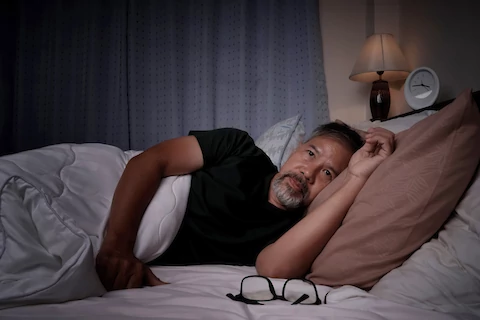
As our loved ones age, they face various challenges, including sundowning—a common condition in seniors with cognitive impairment. Sundowning can be distressing, not only for the individual experiencing it but also for their caregivers and family members. One key component in managing this condition is understanding the connection between sundowning and sleep.
The Science Behind Sundowning and Sleep
Sundowning, also known as late-day confusion, occurs when seniors with cognitive impairment or dementia experience increased confusion, agitation, and other behavioral changes in the late afternoon and evening. While the exact cause of sundowning remains unclear, several factors are believed to contribute to the condition.
One contributing factor is the disruption of the internal body clock, which regulates our sleep-wake cycle. As we age, changes in our brains can lead to a less efficient internal clock and an increased sensitivity to changes in light, particularly during the evening hours. This can result in a disruption of sleep patterns and a misalignment of the body's natural rhythms.
Additionally, fatigue and sleep disturbances are common in seniors, particularly those with cognitive impairment. Restless or fragmented sleep can contribute to increased confusion and agitation during the day. This may worsen as the day progresses and lead to sundowning symptoms in the evening.
Tips for Improving Sleep and Reducing Sundowning Symptoms
Understanding the connection between sundowning and sleep is crucial. The next step is to take action to improve sleep quality and potentially reduce sundowning symptoms in seniors. Here are some tips that can help:
Establishing a Consistent Sleep Schedule
Routine is essential for seniors, particularly for those with cognitive impairment. Creating a consistent sleep schedule can help regulate the internal body clock and improve overall sleep quality. Aim for a regular bedtime and wake-up time, even on weekends, and avoid napping too close to bedtime.
Tracking Sleep Through Journaling
Sleep journaling involves recording details about sleep patterns, such as bedtime, wake-up time, and any disturbances experienced during the night. This can help identify potential sleep issues and provide valuable information for healthcare professionals in creating an effective sleep management plan. Encourage your senior loved one to maintain a sleep journal for a few weeks, and discuss the findings with their healthcare provider.
Creating a Sleep-Friendly Environment
A comfortable and relaxing bedroom promotes better sleep. Optimize your senior loved one's sleep environment by ensuring their mattress and bedding are comfortable, the room temperature is cool, and noise and light levels are minimized. Consider blackout curtains or a white noise machine if necessary.
Keeping the Home Well-Lit Before Bed
Proper lighting plays a crucial role in regulating sleep patterns. Exposing seniors to bright, natural light during the day can help keep their internal body clock in sync while dimming the lights in the evening can signal that it's time to wind down for bed. Ensure your loved one's home environment is well-lit during the day, and consider using a night light or dimmer switch for the evening hours.
Encouraging Daytime Activities and Socialization
Engaging in daytime activities and socializing with others can have a significant impact on sleep quality for seniors. Physical activity, mental stimulation, and social connections can help tire the body and mind, promoting better sleep at night. Encourage your senior loved one to participate in activities they enjoy, such as walking, gardening, or attending social events at a local senior center.
Senior Helpers Sarasota-Bradenton Helps Manage the Symptoms of Sundowning
Understanding the connection between sundowning and sleep is crucial for managing symptoms and helping seniors maintain a sense of well-being. By implementing the tips outlined above, caregivers and family members can work together to help their senior loved ones improve their sleep quality and potentially reduce the symptoms of sundowning.
If you're in the Sarasota, Bradenton, Longboat Key, or Siesta Key area and need professional assistance with senior care, don't hesitate to contact Senior Helpers Sarasota-Bradenton. Our trained and compassionate team is here to help you and your loved ones navigate the challenges of sundowning symptoms.